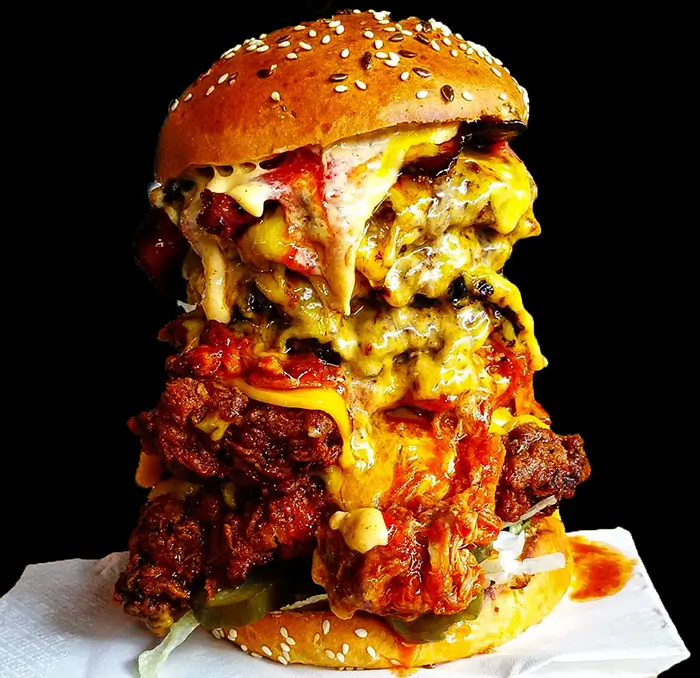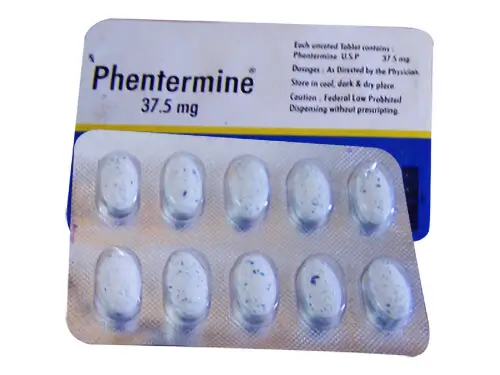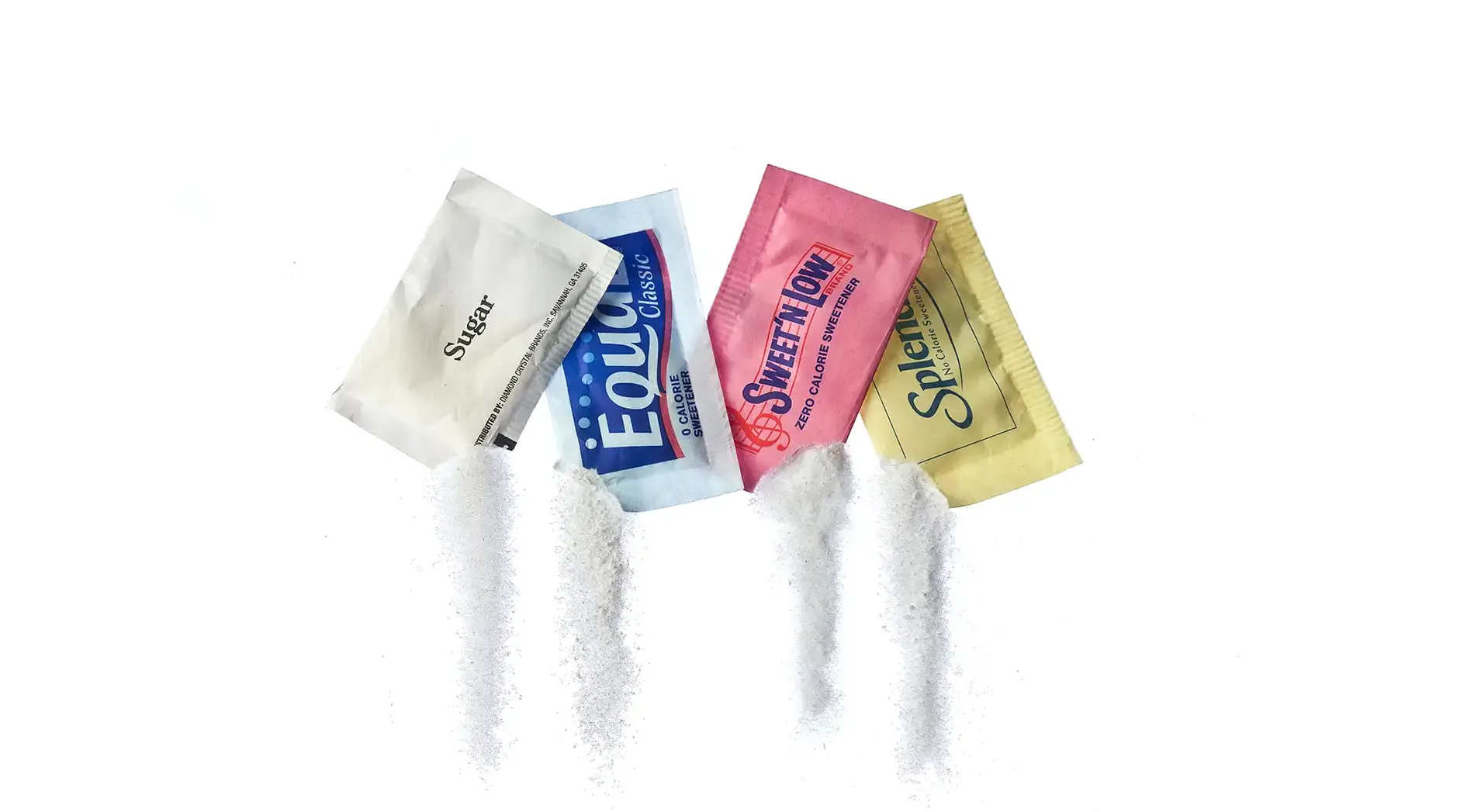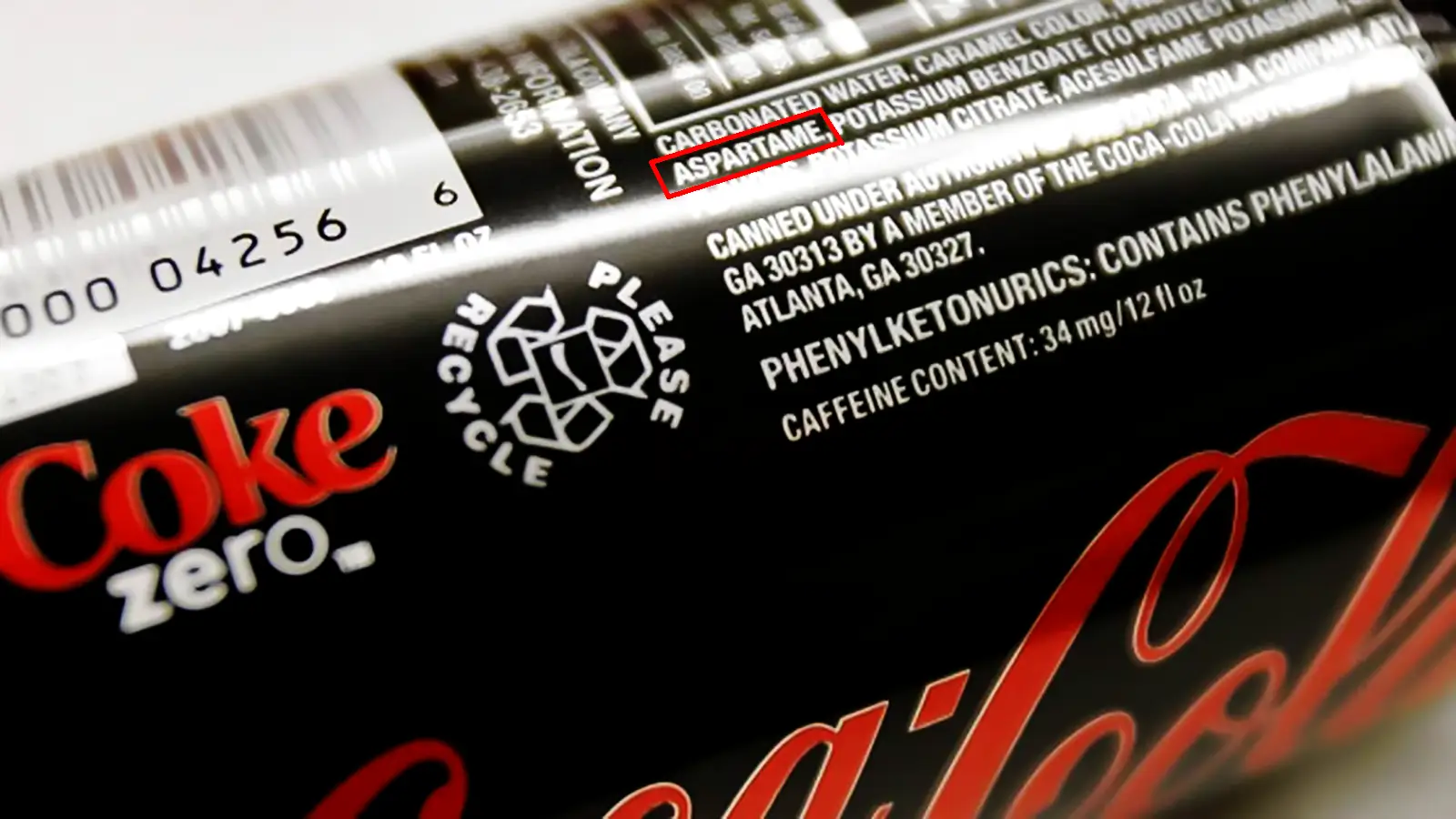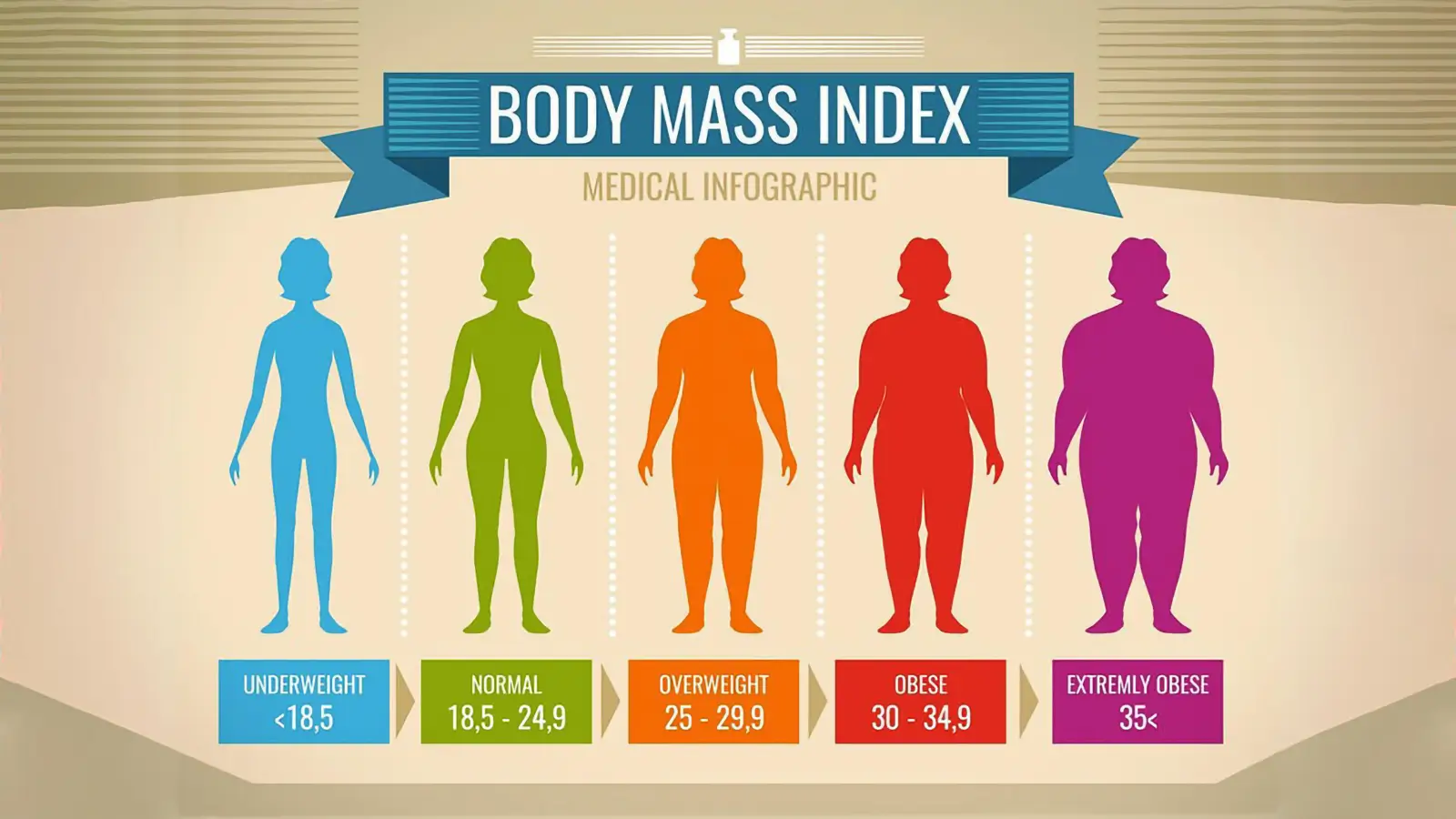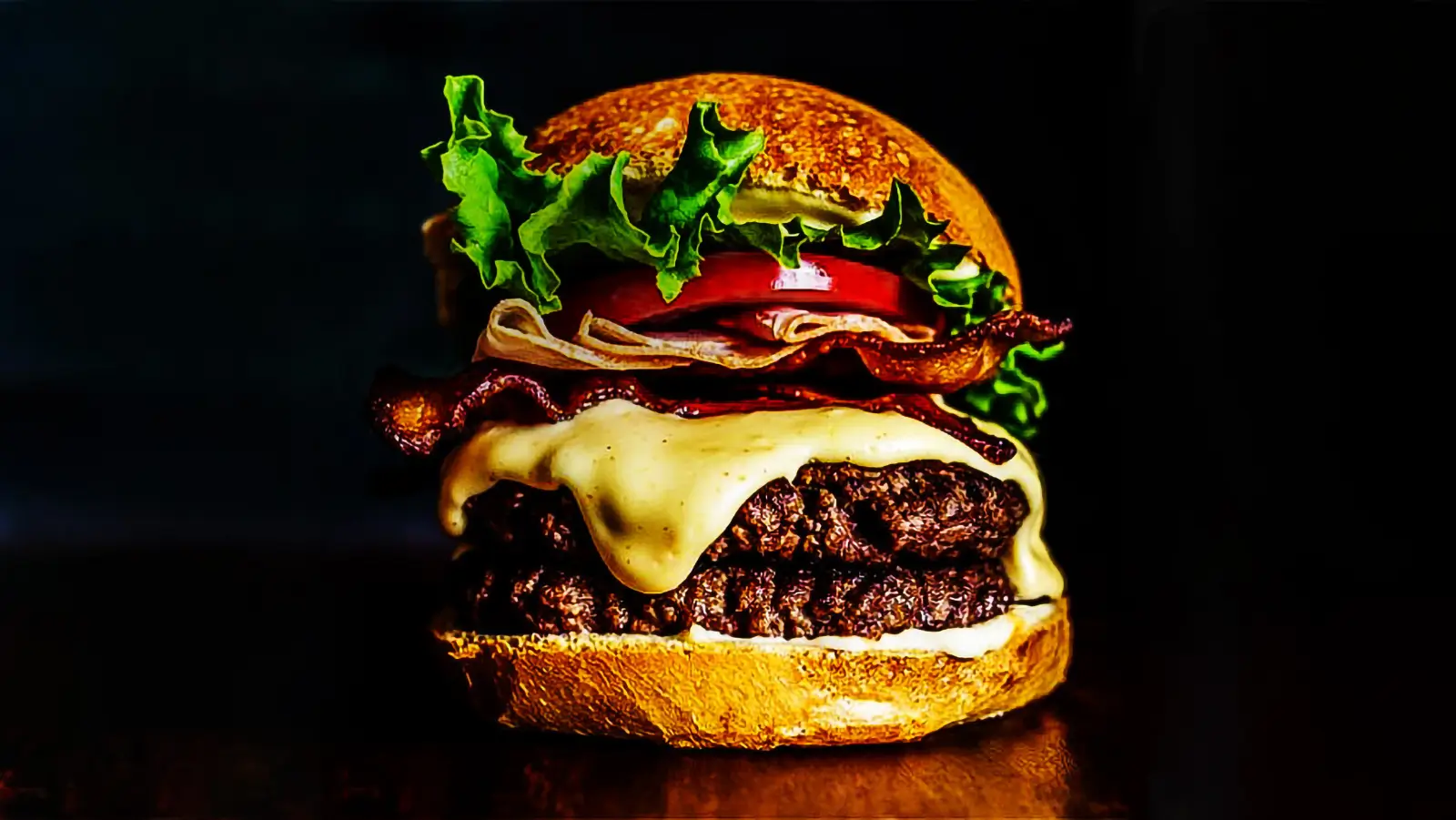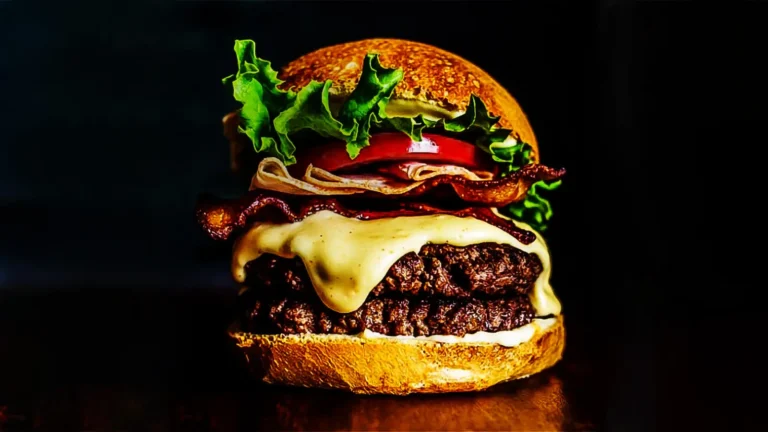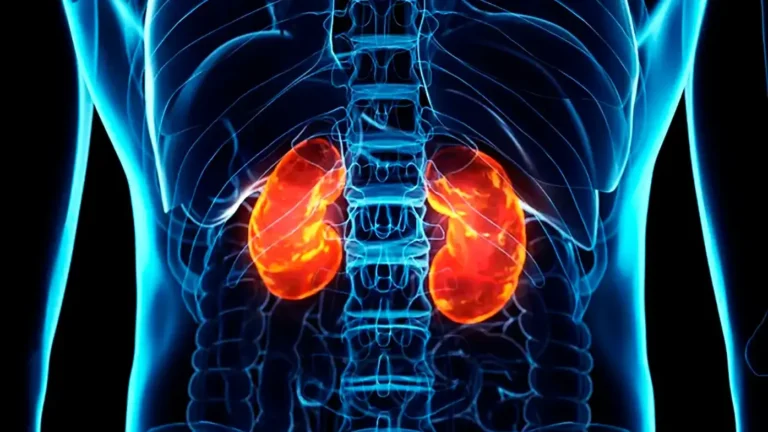Binge eating disorder- The psychology of hunger
In nature, there is no refined sugar or fat. Our brain had never been exposed to a combination of the two all at once forcing us into binge eating disorder.
Milos Pokimica
Written By: Milos Pokimica
Medically Reviewed by: Dr. Xiùying Wáng, M.D.
Updated October 12, 2023Eating for pleasure is nothing new. Binge eating disorder is nothing new. The ability to have excess food to binge is.
Binge eating disorder (BED) is a type of eating disorder that is now officially recognized as a diagnosis. It affects nearly 2% of the global population and can lead to additional health problems linked to diets, such as high cholesterol and diabetes.
Feeding and eating disorders are not solely about food, which is why they are classified as psychiatric disorders. People usually develop them to cope with a deeper issue or another psychological condition, such as anxiety or depression. The most common type of eating disorder in the United States is binge eating disorder. People suffering from binge eating disorder frequently feel out of control and consume a large amount of food at one time (called a binge). People with binge eating disorder, unlike those with other eating disorders, do not vomit their food after the binge. According to research, males and females experience binge eating disorder in equal proportions.
Overeating is a natural part of being human; we can overeat in social settings (e.g., Christmas lunch) or alone (e.g., a night in with Netflix and takeaway). Overeating occurs when a person eats past the point of being comfortably full, whether by choice or by accident. We may overeat if food is present, if the food we are eating is pleasurable, if we are bored or distracted, or if it soothes or comforts us (e.g., when feeling sad, overwhelmed, or after a tough day).
A binge is distinct from overeating and far more common. It is the intense desire to overeat that is felt repeatedly over time, accompanied by feelings of shame, guilt, and being out of control. Binge eating is extremely distressing and can impair a person’s ability to fully participate in all aspects of life (e.g., work or school, recreational activities, socializing, and relationships).
Binge eating disorder is defined as having at least three of the following symptoms while bingeing:
- Eating more quickly than usual
- Eating until uncomfortably full
- Eating large amounts of food when not hungry
- Eating alone to avoid embarrassment
- Feeling disgusted, depressed, or guilty afterward
Binge eating disorder is an addiction like any other addiction only in this case the illegal substance is highly palatable food. This is actually an addiction we all have but in some individuals, it might represent itself not just as obesity but as binge eating. To understand this addiction we have to understand how our brain evolved and understand that today we are maladapted to our environment in an evolutionary sense.
In nature, there is no free sugar or free fat. Energy is stored in complex whole-food packages and one or the other form. Nuts and seeds have their energy stored in the form of fat and grains for example in the form of complex sugars or carbohydrates, and they come with fiber and other substances. Our brain had never been exposed to refined sugar or fat before and especially never been exposed to a combination of the two in high doses all at once. For example, when we eat ice cream or milk chocolate, we have a sugar and fat combination that does not exist in nature. What happens in the brain is the same thing that happens when you inhale crack cocaine.
Crack cocaine itself is a refined product. Cocaine naturally occurs only in the coca plant. You cannot get high at that high level if you chew the leaves as Indian tribes do. It is a traditional stimulant to overcome hunger, fatigue, and thirst.
However, when we extract or in other words refine the cocaine or sugar or fat it is a different story. We can eat poppy seeds as much as we like but when we refine the opium and inject it into the vein or drink the poppy tea, well, here comes the magic dragon. In typical research involved with hunger and weight regulation, the focus was on so-called metabolic or homeostatic hunger. Metabolic hunger is driven by real physiological necessity and is most commonly identified with the rumblings of an empty stomach. By the 1980s researchers had mapped out all of the main hormones and neural connections responsible for metabolic hunger.
By the late 1990s, brain imaging studies and experiments with rodents had begun to reveal a second previously unknown biological pathway. This pathway was underlying the process of eating for pleasure. As I wrote before in the case of obesity standard regulatory system will tell the brain that we have fat deposits stored for an extended period and that we can endure little hunger. Overeating is a form of drug addiction.
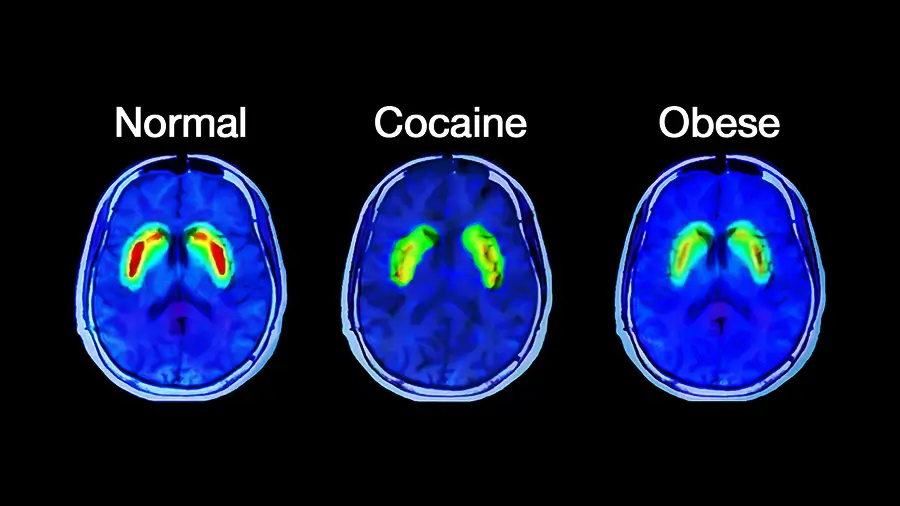
What was found was that extremely sweet or fatty food that we have today but were not present in nature, captivate the brain reward circuit in much the same way that cocaine and gambling can do. Even just seeing the food will trigger the brain’s response. As quickly as such food meets the tongue, taste buds give signals to different areas of the brain. That will result in a response that will trigger the release of the neurochemical dopamine. Frequently overeating highly palatable foods saturate the cerebellum with a significant amount of dopamine that forces the brain to ultimately adjusts by desensitizing itself, decreasing the number of cellular receptors that identify and respond to the neurochemical.
Having a high and constant dopamine level is a form of stimulus that is over-excessive, something called supernormal stimuli. It is a term that evolutionary biologists apply to represent the stimulus that will evoke a response more significant than the stimulus for which it evolved, even if it is artificial. The food industry uses it all the time almost in every possible way they can think of. They even try to link emotional responses and feelings of social acceptance and well-being with supernormal stimuli.
Consequently, as a resistance build-up, people may in truth, proceed to gorge as a process of recollecting or even preserving a sense of well-being. This is possibly the reason why the downregulation of leptin receptors in the brain happens also.
There was a series of research done from 2007 to 2011, at the University of Gothenburg in Sweden. They proved that the release of ghrelin (the hunger hormone) by the abdomen immediately enhances the discharge of dopamine in the brain’s award circuit (Anderberg et al., 2016). This is a significant finding. They also discovered that medications that prevent ghrelin from binding to neurons restrain the tendency for overeating in people who are obese.
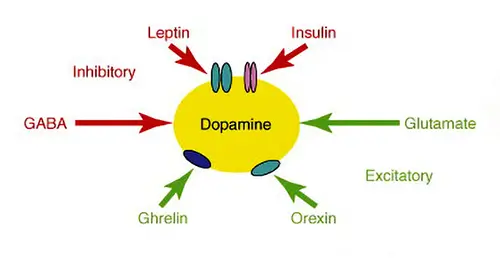
Under normal conditions, leptin and insulin suppress the release of dopamine. In theory, this should reduce the sense of pleasure as a meal continues. Recent rodent studies suggest that the brain stops responding to these hormones as the amount of fatty tissue in the body increases (Massadi et al., 2019). Thus, continued eating keeps the brain awash in dopamine even as the threshold for pleasure keeps going up. A form of maladaptation to our current environment and way of eating and living. If we switch the stimuli from food to cocaine or nicotine or caffeine, we can suppress the hunger drive. Alternatively, also vice versa. If we stop smoking appetite goes up. Tobacco use was linked to hunger-suppressing effects even among Pre-Columbian indigenous Americans. Cigarette smoking for weight loss might not be a good idea, because we will swap one addiction for another. You can try extracted nicotine in products like chewing gum or electronic cigarettes with a caffeine combination. There is, for example, particular drugs that target the brain hunger center for lowering appetite like Belviq, Contrave, Saxenda, Phentermine, and Qsymia. Phentermine is an amphetamine. Regular “speed” can work also. The anti-seizure drug Topamax for epilepsy and migraine headaches lowers the appetite and is registered to treat binge eating disorders. If everything else fails, there are seven weight loss surgeries registered so far, from cutting, and stapling to ballooning. All because of supernormal stimuli of refined food.
There is a group of sensitive individuals that will respond excessively to delicious foods. They would have an excessive response in the brain reward circuit that will dramatically alter their brain chemistry. An overstimulated brain reward circuit will override any self-control mechanism so that willpower will rarely if ever be sufficient to force them to resist eating those foods once they are around creating a binge eating disorder. Researchers at The Scripps Research Institute in Jupiter, Florida found that in rats that have been given unrestricted access to high-calorie foods, their brains showed neurological changes in their reward circuit (Johnson et al., 2010).
It was the first study that showed that the neurological mechanism that drives people into drug addiction is also driving the compulsion for overeating, pushing people into obesity.
High-calorie foods, in this case, were sausage, bacon, cheesecake, and chocolate. Some of the rats were given only one hour a day to feast on high-fat foods, while others had unlimited access 24 hours a day. Both groups were given access to a typical, healthy lab rat chow food. The one group that possessed infinite access to high-calorie food ate little to none of the standard bland low-calorie chow alternatives. They quickly had grown obese because they eat as much as they could, about twice the amount of calories as the control.
The big surprise was that even the rats that had limited access to junk food did their best to keep up. During that one hour, they ate as much as they can with no stopping. They managed to consume, on average, 66% of their daily calories in the course of that one single hour per day and quickly developed a pattern of compulsive binge eating disorder. It was also observed that a group of obese rats with unlimited access to junk food had shown a severely increased threshold for reward levels. The same thing happens with drug addiction. After showing that obese rats had clear addiction-like food-seeking behaviors and that an increased threshold for reward levels is forcing them to seek more and more to reach the same level of reward the researchers investigated underlying neurological mechanisms that are responsible for these changes.
There is a specific receptor in the brain known to play a significant role in vulnerability to drug addiction, the dopamine D2 receptor. In the brain, there are neurotransmitters like dopamine. Dopamine is a feel-good chemical that will get released when we have some pleasurable experience like sex or food. The D2 receptor responds to dopamine. Cocaine, for example, is a drug that increases dopamine levels in the brain by blocking its retrieval. Overstimulation of the dopamine receptors with any supernormal stimuli will eventually lead to neural adaptation in the form of downregulation of the receptors. Also, this was shown in the study too. Levels of the D2 dopamine receptors were significantly reduced in the brains of obese animals. The same thing happens to drug addicts. To determent the level of influence of dopamine in the rats eating behavior, a virus was inserted into the brains of a test group of animals to knock out their dopamine D2 receptors. Addiction-like behavior happened almost instantly. The next day their brains changed into a state that was consistent with an animal that had been overeating for several weeks. Also, the animals had become compulsive in their eating behaviors and developed binge eating disorders. The research that took three years to finish confirms the addictive properties of junk food.
Animals binge-eating lipids and animals binge-eating sugars experience different physiological effects, but the most substantial impact can be brought by the combination of neural effects from both of these ingredients. Actually, the most desired food for the lab rats appeared to be a food item with the highest combination of fat and sugar: cheesecake.
References:
- Anderberg, R. H., Hansson, C., Fenander, M., Richard, J. E., Dickson, S. L., Nissbrandt, H., Bergquist, F., & Skibicka, K. P. (2016). The Stomach-Derived Hormone Ghrelin Increases Impulsive Behavior. Neuropsychopharmacology : official publication of the American College of Neuropsychopharmacology, 41(5), 1199–1209. https://doi.org/10.1038/npp.2015.297
- Al Massadi, O., Nogueiras, R., Dieguez, C., & Girault, J. A. (2019). Ghrelin and food reward. Neuropharmacology, 148, 131–138. https://doi.org/10.1016/j.neuropharm.2019.01.001
- Johnson, P. M., & Kenny, P. J. (2010). Dopamine D2 receptors in addiction-like reward dysfunction and compulsive eating in obese rats. Nature neuroscience, 13(5), 635–641. https://doi.org/10.1038/nn.2519
- Palmiter R. D. (2007). Is dopamine a physiologically relevant mediator of feeding behavior?. Trends in neurosciences, 30(8), 375–381. https://doi.org/10.1016/j.tins.2007.06.004
- Obradovic, M., Sudar-Milovanovic, E., Soskic, S., Essack, M., Arya, S., Stewart, A. J., Gojobori, T., & Isenovic, E. R. (2021). Leptin and Obesity: Role and Clinical Implication. Frontiers in endocrinology, 12, 585887. https://doi.org/10.3389/fendo.2021.585887
- Crujeiras, A. B., Carreira, M. C., Cabia, B., Andrade, S., Amil, M., & Casanueva, F. F. (2015). Leptin resistance in obesity: An epigenetic landscape. Life sciences, 140, 57–63. https://doi.org/10.1016/j.lfs.2015.05.003
- Peng, J., Yin, L., & Wang, X. (2021). Central and peripheral leptin resistance in obesity and improvements of exercise. Hormones and behavior, 133, 105006. https://doi.org/10.1016/j.yhbeh.2021.105006
Related Posts
Do you have any questions about nutrition and health?
I would love to hear from you and answer them in my next post. I appreciate your input and opinion and I look forward to hearing from you soon. I also invite you to follow us on Facebook, Instagram, and Pinterest for more diet, nutrition, and health content. You can leave a comment there and connect with other health enthusiasts, share your tips and experiences, and get support and encouragement from our team and community.
I hope that this post was informative and enjoyable for you and that you are prepared to apply the insights you learned. If you found this post helpful, please share it with your friends and family who might also benefit from it. You never know who might need some guidance and support on their health journey.
– You Might Also Like –

Learn About Nutrition
Milos Pokimica is a doctor of natural medicine, clinical nutritionist, medical health and nutrition writer, and nutritional science advisor. Author of the book series Go Vegan? Review of Science, he also operates the natural health website GoVeganWay.com
Medical Disclaimer
GoVeganWay.com brings you reviews of the latest nutrition and health-related research. The information provided represents the personal opinion of the author and is not intended nor implied to be a substitute for professional medical advice, diagnosis, or treatment. The information provided is for informational purposes only and is not intended to serve as a substitute for the consultation, diagnosis, and/or medical treatment of a qualified physician or healthcare provider.NEVER DISREGARD PROFESSIONAL MEDICAL ADVICE OR DELAY SEEKING MEDICAL TREATMENT BECAUSE OF SOMETHING YOU HAVE READ ON OR ACCESSED THROUGH GoVeganWay.com
NEVER APPLY ANY LIFESTYLE CHANGES OR ANY CHANGES AT ALL AS A CONSEQUENCE OF SOMETHING YOU HAVE READ IN GoVeganWay.com BEFORE CONSULTING LICENCED MEDICAL PRACTITIONER.
In the event of a medical emergency, call a doctor or 911 immediately. GoVeganWay.com does not recommend or endorse any specific groups, organizations, tests, physicians, products, procedures, opinions, or other information that may be mentioned inside.
Editor Picks –
Milos Pokimica is a health and nutrition writer and nutritional science advisor. Author of the book series Go Vegan? Review of Science, he also operates the natural health website GoVeganWay.com
Latest Articles –
Top Health News — ScienceDaily
- The overlooked nutrition risk of Ozempic and Wegovyon February 4, 2026
Popular weight-loss drugs like Ozempic and Wegovy can dramatically curb appetite, but experts warn many users are flying blind when it comes to nutrition. New research suggests people taking these medications may not be getting enough guidance on protein, vitamins, and overall diet quality, increasing the risk of muscle loss and nutrient deficiencies.
- A 25-year study found an unexpected link between cheese and dementiaon February 4, 2026
A massive Swedish study tracking nearly 28,000 people for 25 years found an unexpected link between full-fat dairy and brain health. Among adults without a genetic risk for Alzheimer’s, eating more full-fat cheese was associated with a noticeably lower risk of developing the disease, while higher cream intake was tied to reduced dementia risk overall. The findings challenge decades of low-fat dietary advice but come with important caveats.
- MIT’s new brain tool could finally explain consciousnesson February 4, 2026
Scientists still don’t know how the brain turns physical activity into thoughts, feelings, and awareness—but a powerful new tool may help crack the mystery. Researchers at MIT are exploring transcranial focused ultrasound, a noninvasive technology that can precisely stimulate deep regions of the brain that were previously off-limits. In a new “roadmap” paper, they explain how this method could finally let scientists test cause-and-effect in consciousness research, not just observe […]
- Why heart disease risk in type 2 diabetes looks different for men and womenon February 4, 2026
Scientists are digging into why heart disease risk in type 2 diabetes differs between men and women—and sex hormones may be part of the story. In a large Johns Hopkins study, men with higher testosterone had lower heart disease risk, while rising estradiol levels were linked to higher risk. These hormone effects were not seen in women. The results point toward more personalized approaches to heart disease prevention in diabetes.
- Sound machines might be making your sleep worseon February 4, 2026
Sound machines may not be the sleep saviors many believe. Researchers found that pink noise significantly reduced REM sleep, while simple earplugs did a better job protecting deep, restorative sleep from traffic noise. When pink noise was combined with outside noise, sleep quality dropped even further. The results suggest that popular “sleep sounds” could be doing more harm than good—particularly for kids.
- This unexpected plant discovery could change how drugs are madeon February 3, 2026
Plants make chemical weapons to protect themselves, and many of these compounds have become vital to human medicine. Researchers found that one powerful plant chemical is produced using a gene that looks surprisingly bacterial. This suggests plants reuse microbial tools to invent new chemistry. The insight could help scientists discover new drugs and produce them more sustainably.
- A hidden cellular process may drive aging and diseaseon February 3, 2026
As we age, our cells don’t just wear down—they reorganize. Researchers found that cells actively remodel a key structure called the endoplasmic reticulum, reducing protein-producing regions while preserving fat-related ones. This process, driven by ER-phagy, is tied to lifespan and healthy aging. Because these changes happen early, they could help trigger later disease—or offer a chance to stop it.
PubMed, #vegan-diet –
- Diet type and the oral microbiomeon February 2, 2026
CONCLUSION: The diet-oral microbiome-systemic inflammation axis is bidirectional and clinically relevant. Understanding both direct ecological regulation and indirect metabolic effects is essential to support precision nutrition strategies aimed at maintaining oral microbial balance and systemic inflammatory risk mitigation.
- Consensus document on healthy lifestyleson January 22, 2026
Proteins are a group of macronutrients that are vital to our lives, as they perform various functions, including structural, defensive and catalytic. An intake of 1.0-1.2 g/kg/body weight per day would be sufficient to meet our needs. Carbohydrate requirements constitute 50 % of the total caloric value and should be obtained mainly in the form of complex carbohydrates. In addition, a daily intake of both soluble and insoluble fiber is necessary. Regular consumption of extra virgin olive oil […]
- Vitamin B12 and D status in long-term vegetarians: Impact of diet duration and subtypes in Beijing, Chinaon January 21, 2026
CONCLUSIONS: This study reveals a dual challenge among Beijing long-term vegetarians: vitamin B12 deficiency was strongly associated with the degree of exclusion of animal products from the diet (veganism), while vitamin D deficiency was highly prevalent and worsened with longer diet duration. The near-universal vitamin D deficiency observed in this study suggests that, in the Beijing context, the risk may extend beyond dietary choice, potentially reflecting regional environmental factors;…
- Nutritional evaluation of duty meals provided to riot police forces in Germanyon January 13, 2026
Background: The primary role of the German riot police is maintaining internal security. Due to challenging working conditions, riot police forces face an elevated risk of various diseases. During duty, forces are provided with meals. A balanced diet can reduce the risk of some of these diseases and contribute to health-promoting working conditions. Aim: First evaluation of the nutritional quality of duty meals in Germany based on German Nutrition Society recommendations (DGE). Methods: In…
- Iodineon January 1, 2006
Iodine is an essential trace nutrient for all infants that is a normal component of breastmilk. Infant requirements are estimated to be 15 mcg/kg daily in full-term infants and 30 mcg/kg daily in preterm infants.[1] Breastmilk iodine concentration correlates well with maternal urinary iodine concentration and may be a useful index of iodine sufficiency in infants under 2 years of age, but there is no clear agreement on a value that indicates iodine sufficiency, and may not correlate with […]
Random Posts –
Featured Posts –
Latest from PubMed, #plant-based diet –
- From paddy soil to dining table: biological biofortification of rice with zincby Lei Huang on February 4, 2026
One-third of paddy soils are globally deficient in zinc (Zn) and 40% of Zn loss in the procession from brown rice to polished rice, which results in the global issue of hidden hunger, e.g., the micronutrient deficiencies in the rice-based population of developing countries. In the recent decades, biofortification of cereal food crops with Zn has emerged as a promising solution. Herein, we comprehensively reviewed the entire process of Zn in paddy soil to human diet, including the regulatory…
- Molecular Characterization of Tobacco Necrosis Virus A Variants Identified in Sugarbeet Rootsby Alyssa Flobinus on February 3, 2026
Sugarbeet provides an important source of sucrose; a stable, environmentally safe, and low-cost staple in the human diet. Viral diseases arising in sugarbeet ultimately impact sugar content, which translates to financial losses for growers. To manage diseases and prevent such losses from occurring, it is essential to characterize viruses responsible for disease. Recently, our laboratory identified a tobacco necrosis virus A variant named Beta vulgaris alphanecrovirus 1 (BvANV-1) in sugarbeet…
- Nutrition in early life interacts with genetic risk to influence preadult behaviour in the Raine Studyby Lars Meinertz Byg on February 3, 2026
CONCLUSIONS: Nutrition in early life and psychiatric genetic risk may interact to determine lasting child behaviour. Contrary to our hypothesis, we find dietary benefits in individuals with lower ADHD PGS, necessitating replication. We also highlight the possibility of including genetics in early nutrition intervention trials for causal inference.
- Effect of the gut microbiota on insect reproduction: mechanisms and biotechnological prospectsby Dilawar Abbas on February 2, 2026
The insect gut microbiota functions as a multifunctional symbiotic system that plays a central role in host reproduction. Through the production of bioactive metabolites, gut microbes interact with host hormonal pathways, immune signaling, and molecular regulatory networks, thereby shaping reproductive physiology and fitness. This review summarizes recent advances in understanding how gut microbiota regulate insect reproduction. Accumulating evidence demonstrates that microbial metabolites…
- Rationale and design of a parallel randomised trial of a plant-based intensive lifestyle intervention for diabetes remission: The REmission of diabetes using a PlAnt-based weight loss InteRvention…by Brighid McKay on February 2, 2026
CONCLUSIONS: This trial will provide high-quality clinical evidence on the use of plant-based ILIs to address the epidemics of obesity and diabetes to inform public health policies and programs in Canada and beyond.
- Diet type and the oral microbiomeby Daniel Betancur on February 2, 2026
CONCLUSION: The diet-oral microbiome-systemic inflammation axis is bidirectional and clinically relevant. Understanding both direct ecological regulation and indirect metabolic effects is essential to support precision nutrition strategies aimed at maintaining oral microbial balance and systemic inflammatory risk mitigation.
